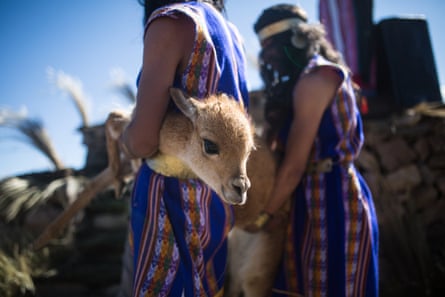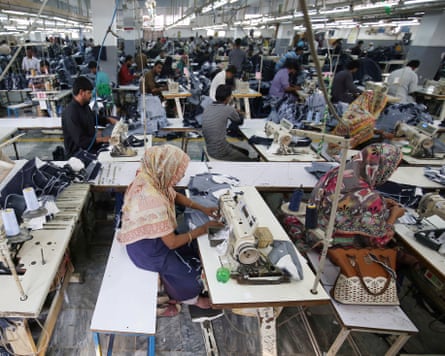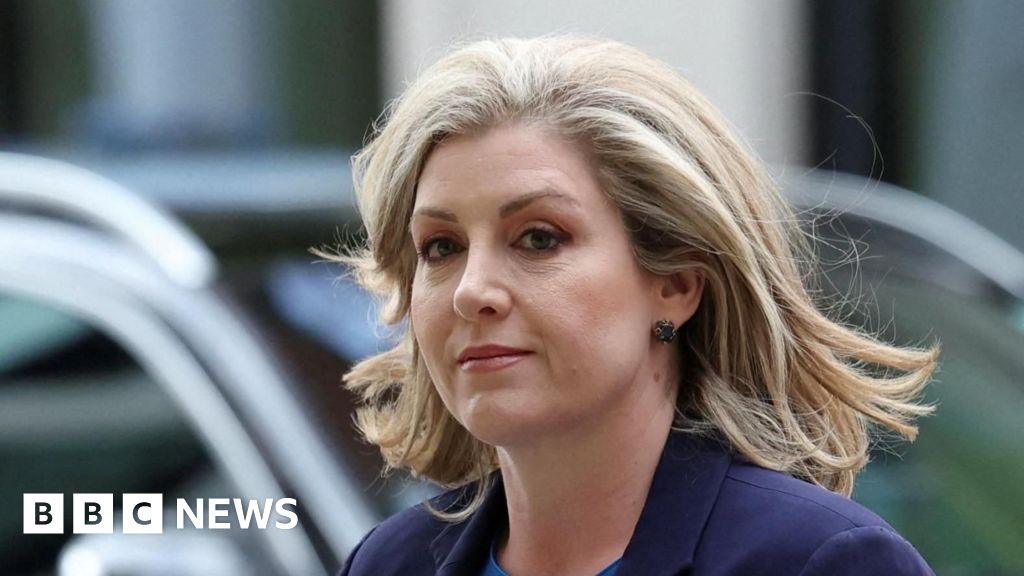For years shoppers have been aware of scandals about the origins of cheap clothing sold in high street stores. Garment industry workers who make clothes for leading brands have been beaten for asking for living wages and notes pleading for help have been found hidden in clothing. There have also been stories about hidden child labour and some workers in UK factories are feared to be trapped in modern slavery.
Now after a series of labour investigations by Milanese prosecutors, the luxury fashion industry is fast coming under similar scrutiny.
Last week, Loro Piana, the 100-year-old Italian brand that sells four-figure cashmere jumpers and whose “quiet luxury” aesthetic had been championed by celebrities including Gwyneth Paltrow and worn by the super-rich characters in the TV show Succession, was placed under a 12-month court administration over alleged worker exploitation.
The ruling arises from an investigation into Italy’s luxury goods supply chain that began in 2023. According to the court, Loro Piana – owned by the luxury conglomerate LVMH – outsourced production of some clothing including cashmere jackets to an external Chinese-operated fashion company, which in turn subcontracted the work to two other companies. These were illegal workshops that operated on the outskirts of Milan. In May, the labour crime unit of the Carabinieri military police found that 10 Chinese people, five of whom were undocumented migrants, were forced to work up to 90 hours a week for as little as €4 per hour, as reported by Reuters.
It is worth noting that the brand is not under criminal investigation and if the company complies with a set of legal requirements before the deadline issued by the court, the order will be lifted.
In a statement to the Guardian, Loro Piana said the supplier had not informed the company of the existence of subcontractors. It also said: “Loro Piana was made aware of this situation on 20 May, and, as a result, the Maison terminated all relations with the concerned supplier in less than 24 hours.”
However, news of the order has further tainted the idea of the “Made in Italy” label, a term that typically denotes high-quality manufacturing.
Loro Piana is now the fifth fashion house to be placed under court monitoring in Italy since 2023. Armani and LVMH’s Dior have both faced similar action over the last year. In February the monitoring orders placed on them were lifted early as the court said both brands had taken all the necessary corrective action before the 12-month deadline assigned to them had passed. In May a subdivision of Valentino, Valentino Bags Lab Srl, was also placed under judicial administration.
Last year, an investigation by Italian police found that Armani bags that retail for €1,800 were being made by a Chinese subcontractor for €93 and then sold on to the group by an intermediary for €250. A Dior subsidiary was sanctioned for paying as little as €53 for bags that retail for more than €2,000, the FT reported.
Loro Piana released a statement about the difference between the price tag on its clothing and the supposed cost to produce it. According to the recent Italian investigation into Loro Piana, some jackets from the brand that can retail for more than €3,000 were being produced for as little as €118. The statement said: “The reported cost figures are not representative of the amounts paid by Loro Piana to its supplier, nor do they consider the full value of all the elements, including, among others, raw materials and fabrics.”
For many consumers, there is a perception that luxury and ethics go hand in hand. But Deborah Lucchetti, who works as a national coordinator at the Italian segment of Clean Clothes Campaign, a network dedicated to improving working conditions and empowering workers in the global garment industry, says that this is an illusion. “Luxury is based on a production system founded on cost reduction, profit maximisation and opaque supply chains based on subcontracting, which often employ immigrant workers who have no protection and contracts,” she says.
Lucchetti points to another ongoing case involving a group of workers in Prato, Tuscany, employed in the Montblanc supply chain who say they lost their jobs after raising complaints against inhumane working conditions. “All this is protected by commercial audits that protect the reputation of brands, not workers,” says Lucchetti. “Honestly, where is the difference from fast fashion?”
In a statement, Montblanc told the Guardian that it had terminated the firm’s contract because it had failed to adhere to its parent company’s supplier code of conduct and was working with “an undeclared and unauthorised subcontractor. It is important to understand that neither unannounced inspections nor a third-party forensic audit conducted in early 2023 showed any evidence of the alleged extent of precarious working conditions.”
They added that the company in its supply chain decided to dismiss “six workers - out of an estimated 60”, 10 months after it had stopped working with Montblanc.

Last year, meanwhile, a Bloomberg investigation alleged problems in the supply chain for Loro Piana’s vicuña (a type of South American camelid known for its soft wool) by underpaying the Indigenous Peruvian workers who supply the fibre. Loro Piana has disputed the claim. “Since it arrived in Peru in the 80s, Loro Piana has been committed to upholding the highest standards of ethical and responsible business practices,” the company said in a statement to Bloomberg.
These latest claims come at a particularly challenging time for the luxury industry with tariffs, wars and a volatile financial market causing a widespread slowdown. Whether supply chain scandals are scaring away consumers or not, steep price hikes certainly seem to have contributed to a sharp downturn in demand. According to HSBC, luxury prices in Europe are 52% higher than they were in 2019. The fact that many of these pieces are made for a tiny fraction of their retail price could also put off consumers.
after newsletter promotion
Sarah Kent, chief sustainability correspondent at the Business of Fashion, says it is difficult to ascertain how much the allegations will impact sales. “Historically, luxury consumers have not proved particularly responsive to scandals. What feels different (and potentially more dangerous) this time is that the scrutiny on luxury’s supply chains has coincided with a broader conversation about whether big brands’ products are still worth the money given steep price hikes since the pandemic and online complaints about declining quality.”
Loro Piana’s chair Antoine Arnault, who also oversees LVMH’s environmental strategy and whose younger brother Frédéric became the CEO of Loro Piana in June, has previously described luxury products as “sustainable by nature”. Speaking at the 2023 global fashion summit in Copenhagen, he said: “That’s what makes them so special. They are made from the highest-quality materials; they are durable; they are repairable. That is what separates us from the rest of the fashion industry.”

But the lines between fast fashion and luxury seem to be becoming more blurred. Mass fashion giants regularly blame a convoluted supply chain for exploitation. Some specialised work such as embroidery may be subcontracted because fashion brands may not be able to do everything in-house. Luxury houses have sometimes given the impression that such specialised work is being done in small artisan workshops which in turn justify higher prices for the finished product, when in fact, some items have been made in larger factories that exploit workers.
As Lucchetti sees it, the causes of exploitation need to be addressed directly. “The phenomenon highlighted by the Milan Public prosecutor’s office is structural in nature and cannot be resolved in a short time, certainly not by a voluntary protocol, that does not address the root causes of the problem: unfair commercial practices and predatory prices imposed by brands on suppliers, forcing them to break the law and national collective contracts to remain on the market.”
The Italian Competition Authority has previously launched parallel investigations concerning misleading ethical claims. In May it concluded an unfair-practices probe into Dior, with the brand pledging to contribute €2m over five years to support anti-exploitation initiatives.
Kent highlights the fact that prosecutors in Milan have “described the issues with subcontracting identified in their investigations as a feature, not a bug in the system” and that “luxury brands routinely turn a blind eye to issues that should raise red flags in order to maximise profits.”
She concludes: “Critics certainly argue that the consequences for brands caught up in the scandal are too lax and change would be swifter if there were financial penalties for failures in due diligence.”
To read the complete version of this newsletter – complete with this week’s trending topics in The Measure – subscribe to receive Fashion Statement in your inbox every Thursday.

 23 hours ago
3
23 hours ago
3










 English (US)
English (US)